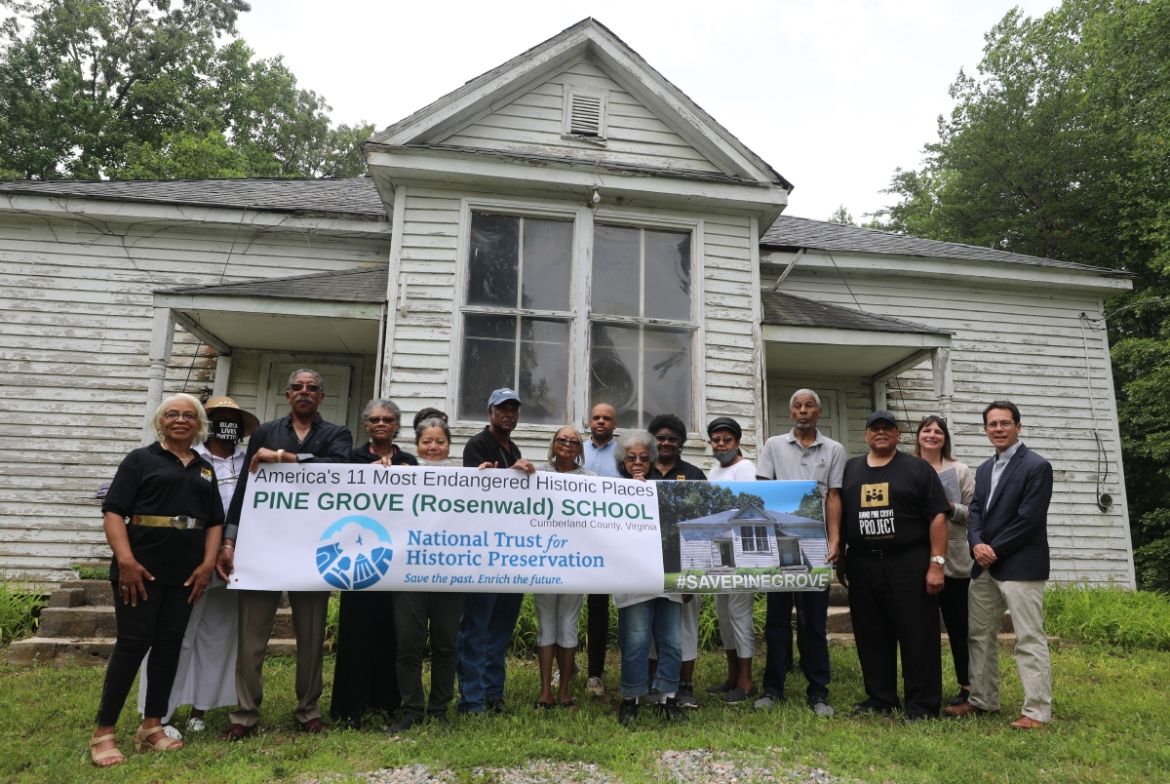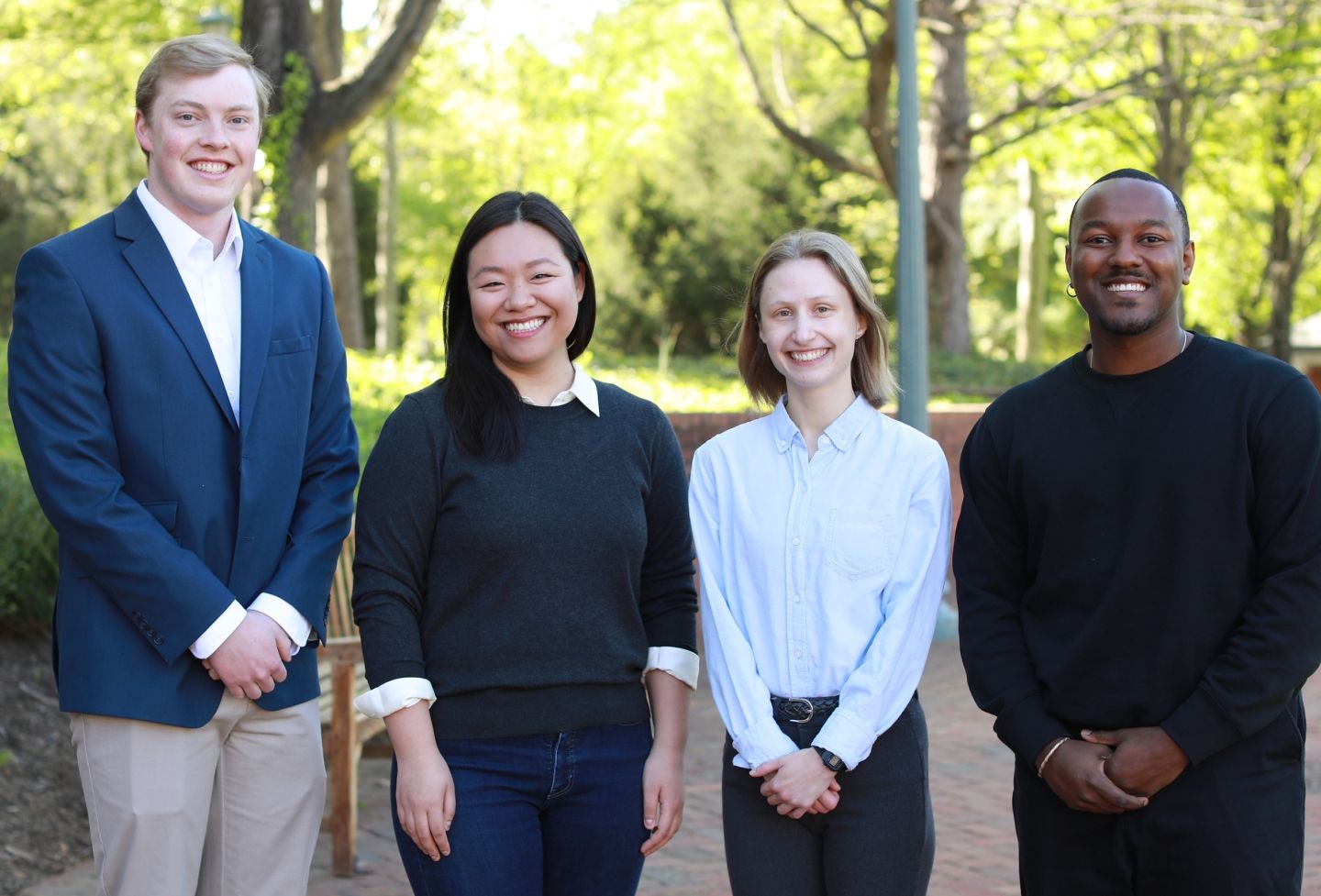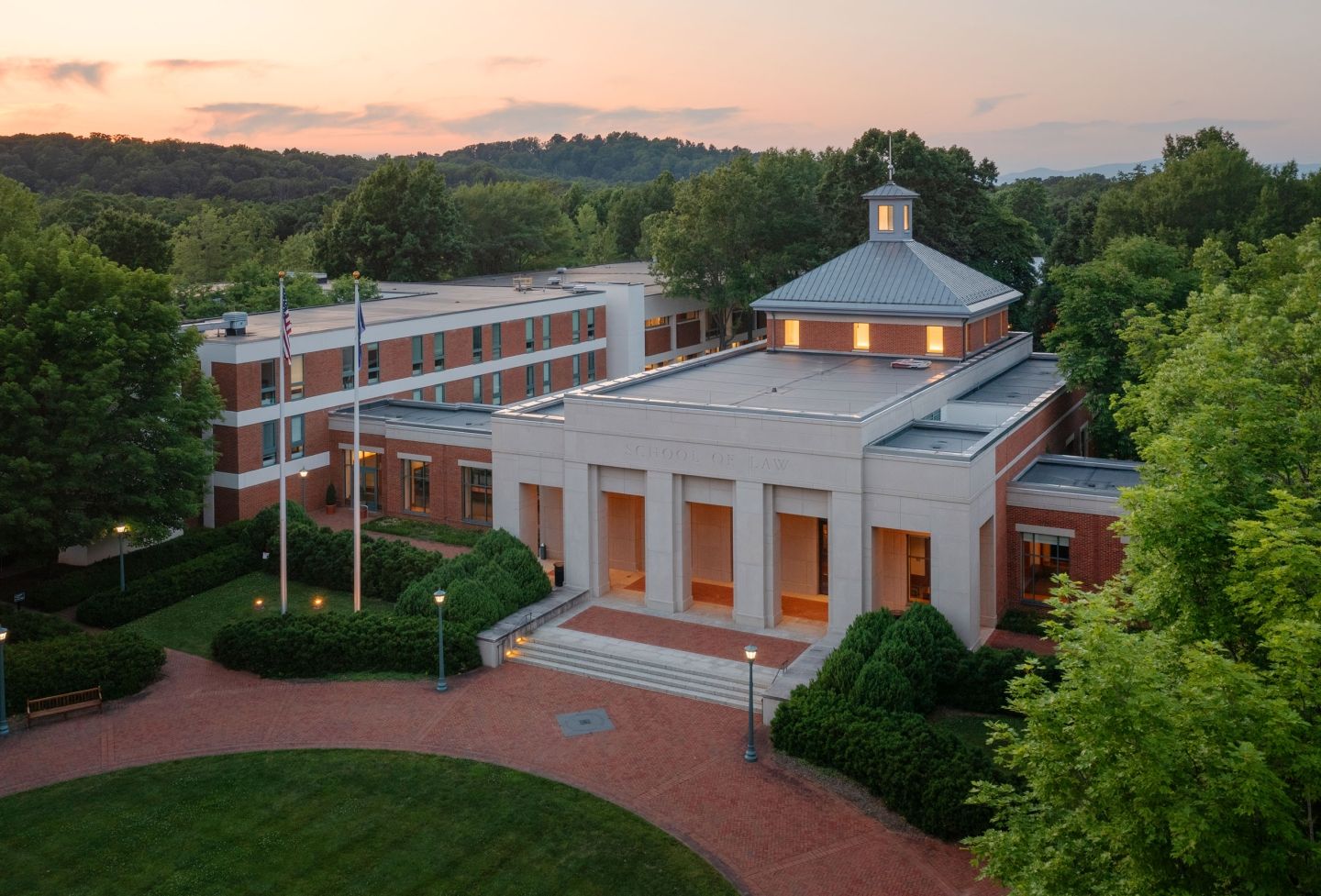When Cale Jaffe ’01 first started working with community partners to help preserve a historic Black schoolhouse in Cumberland, Virginia, he didn’t realize one of the biggest public services he would be performing would be the simple act of listening.
The ongoing battle to prevent a 1,200-acre landfill from being built adjacent to the Pine Grove School helped earn Jaffe, an environmental law professor at the University of Virginia School of Law, one of UVA’s two Excellence in Public Service awards this year.
Muriel Miller Branch, the founder of the AMMD Pine Grove Project, the lead community organization aiming to preserve the school, wrote a letter supporting his nomination and noting the value of feeling heard.
“For the first time, our rural, poor, historically Black community felt as though someone was paying attention to us; finally valuing our voices, our history and culture; and appreciating what our ancestors had built (school and community) against the backdrop of unspeakable civil and human rights odds,” Branch wrote.
The Environmental Law and Community Engagement Clinic “has become our staunchest advocate for environmental, social and racial justice,” she added.
Since taking on the project in 2019, Jaffe has brought together other advocacy groups, including the Southern Environmental Law Center and the Virginia Poverty Law Center, “to join forces to use law and the grit of community to stop the landfill from being sited in the Pine Grove Community,” as Branch put it.
Jaffe joined UVA Law in 2016 to lead a newly reorganized Environmental and Regulatory Law Clinic, working with students to partner with the Sierra Club and the Virginia Energy Efficiency Council, among other public-interest clients. When he noticed that students tended to think of those cases as “our” cases — meaning, the clinic’s cases — he reorganized and renamed the clinic in 2020 to emphasis the client’s and public’s role in the matter: It became the Environmental Law and Community Engagement Clinic.

“I accepted the [Pine Grove] case into the clinic because I wanted to give students the chance to work directly with a community and make sure the community’s stories were elevated and cherished as an incredible monument to strength in the face of segregation, Jim Crow persecution and discrimination,” Jaffe said.
From its dedication in 1917 to its closure in 1964, Pine Grove served rural Black families when children of color were barred from attending all-white public schools. The school produced accomplished graduates that include Branch (an award-winning author), a former Commonwealth’s attorney and a senior executive at Aetna. The project’s founders wanted that record preserved and celebrated as much as they wanted to defeat the landfill.
Over the last four years, Jaffe’s clinic students have drafted documents to support the school’s listing on the National Register of Historic Places and helped get it on the National Trust for Historic Preservation’s list of Most Endangered Places. They also collaborated with UVA’s School of Architecture to develop a health impact assessment report to help federal and state regulators understand the value of both the school and the surrounding community.
Most recently, the school was featured in an 18-minute documentary, “Pine Grove: More Than A School,” produced in collaboration with UVA Law’s Program in Law, Communities, and the Environment (PLACE), which Jaffe co-directs with Professor Richard C. Schragger, and Departure Point Films. Professor Michael A. Livermore, who previously directed the PLACE program, is the film’s executive producer. The short has been screened at the Law School, at the Moton Museum in Farmville and at a handful of film festivals.
“If you’re a hammer, you see every problem is a nail; if you’re a litigator, you see every problem as litigation,” Jaffe said. “By listening, we saw the opportunity to help translate the community’s story into a form that will resonate in the environmental permitting process or in the legal process if that comes later.”
The threat posed by the landfill remains, and the clinic continues to work with the project to preserve the school and the community’s history.
But, as Jaffe put it in an email exchange with Branch, he “pledge[s] to keep listening,” to make sure the clinic’s work is impeccable.
Branch wrote back: “The most powerful words spoken in this entire thread are, ‘I pledge to keep listening.’ That’s all my community has ever asked, to he heard, to be valued and to have equal access to resources.”
Jaffe reflected on that exchange in an op-ed he wrote for Trends, a publication of the ABA Section of Environment, Energy, and Resources, titled, “Pledge to keep listening: The role of legal ethics in environmental justice advocacy.”
Noting the omission of listening as a professional obligation under the ABA Model Rules of Professional Conduct, Jaffe wrote: “There is no prescription about resisting the urge to offer immediate advice on a course of action. There is nothing about taking time to let a client’s fears, concerns, aspirations, and expectations sink in.”
To honor a client’s autonomy “requires accepting that our expertise as lawyers matters less than a client’s dignity. It demands humility.”
Founded in 1819, the University of Virginia School of Law is the second-oldest continuously operating law school in the nation. Consistently ranked among the top law schools, Virginia is a world-renowned training ground for distinguished lawyers and public servants, instilling in them a commitment to leadership, integrity and community service.


